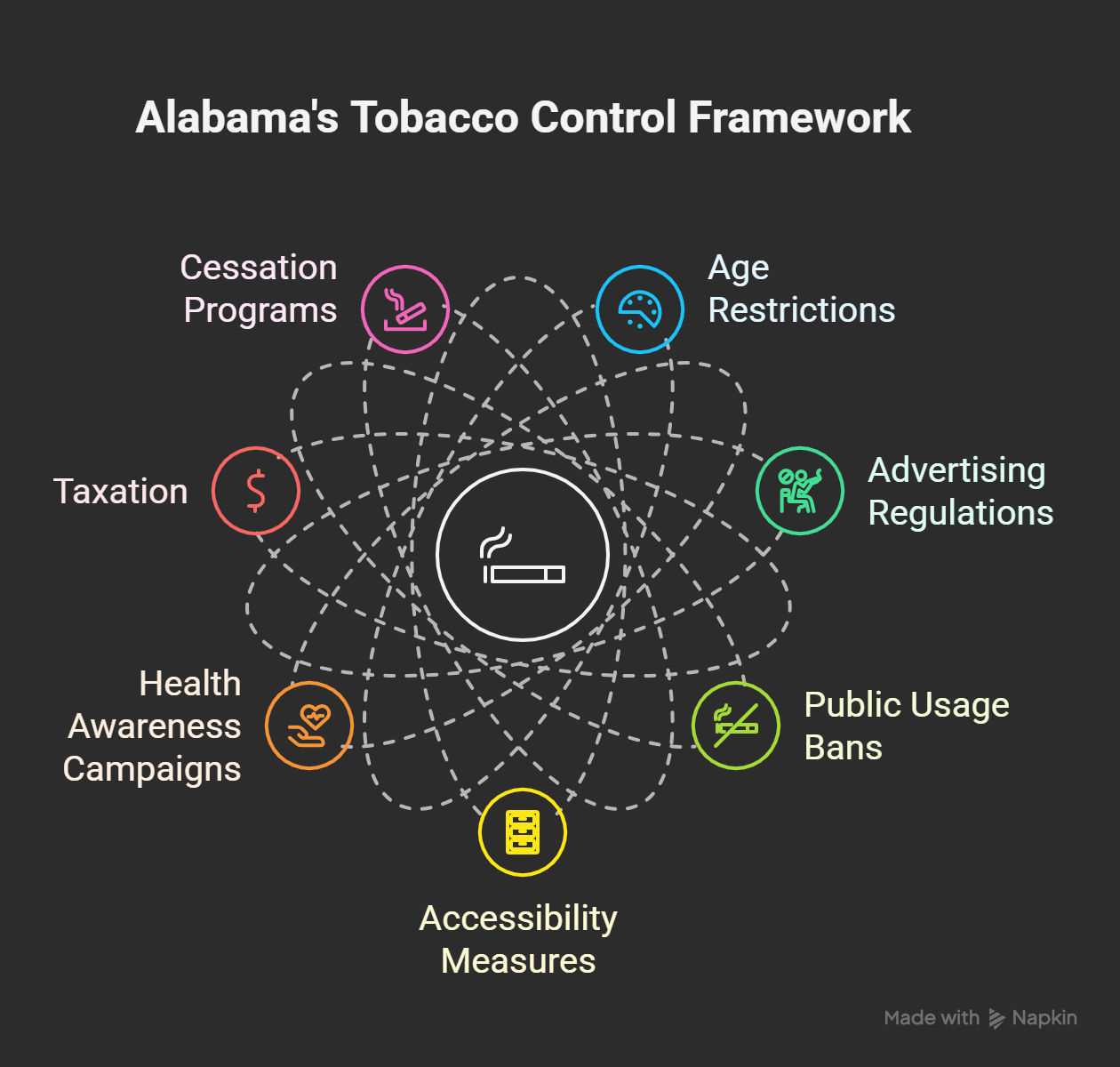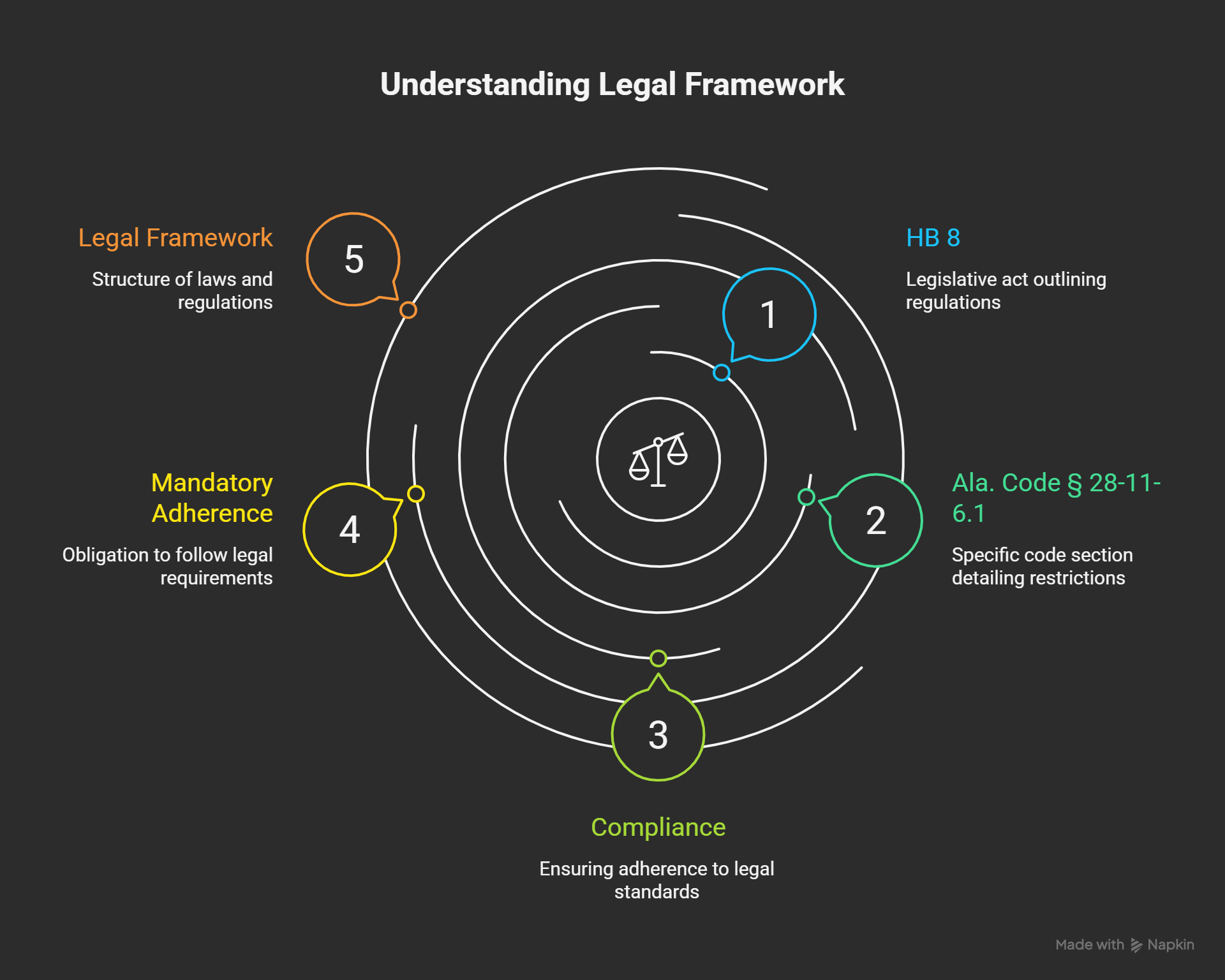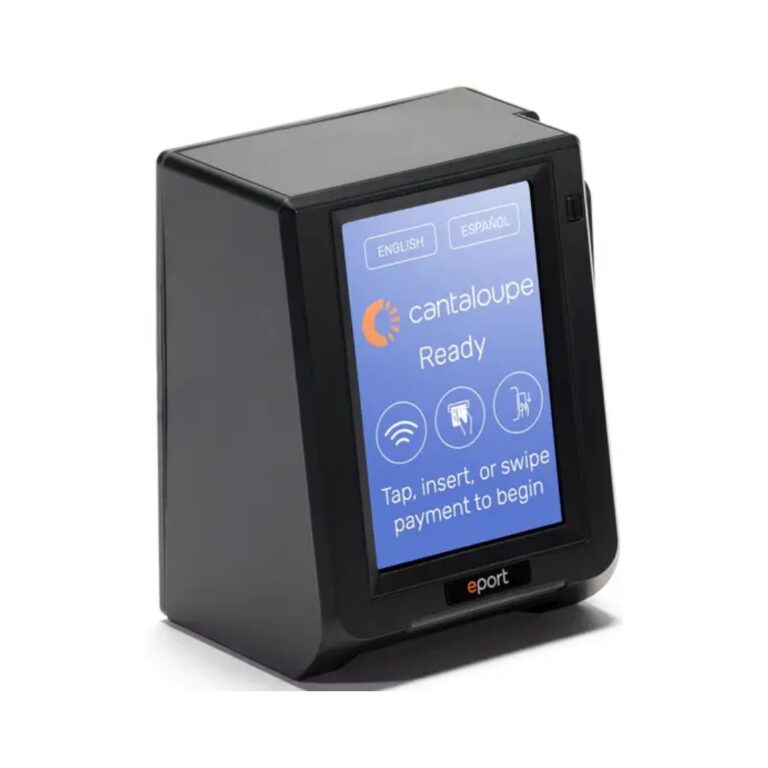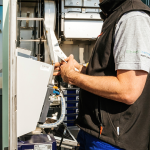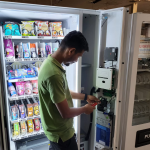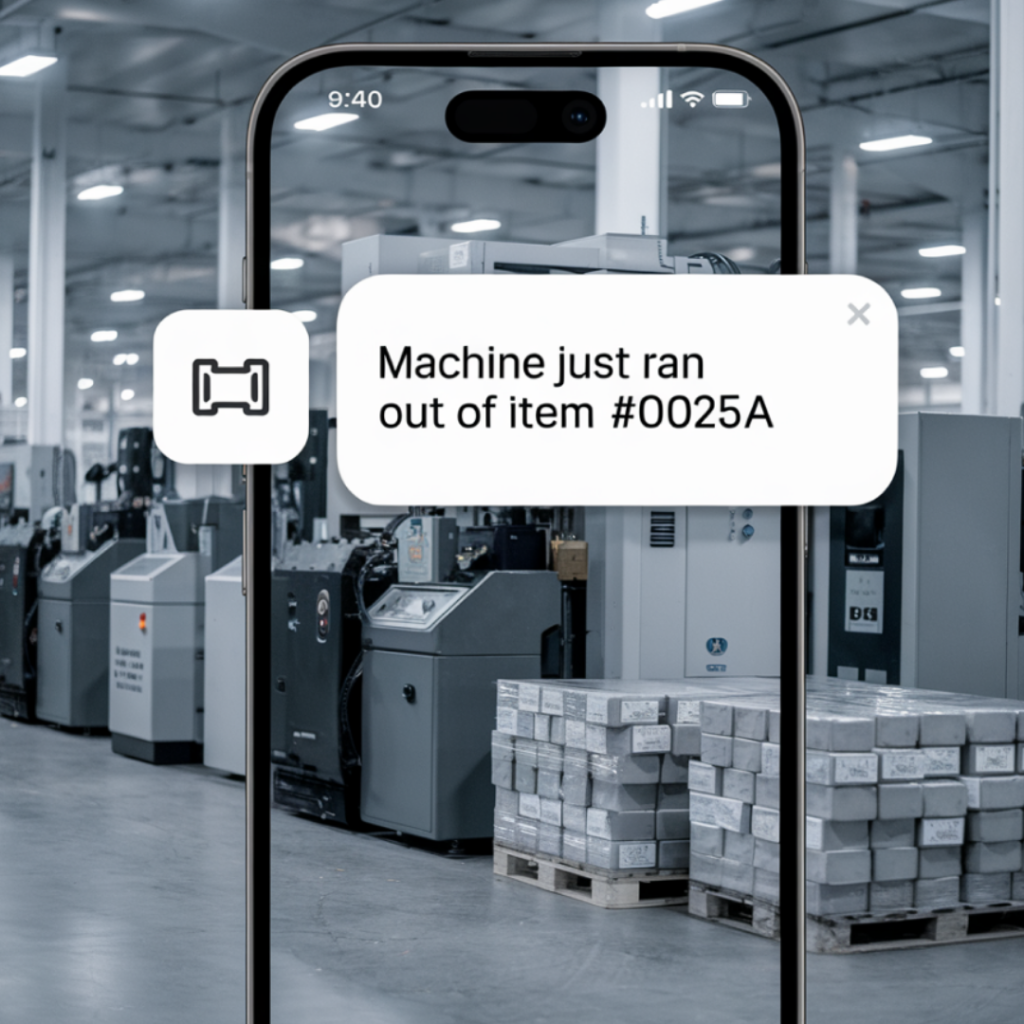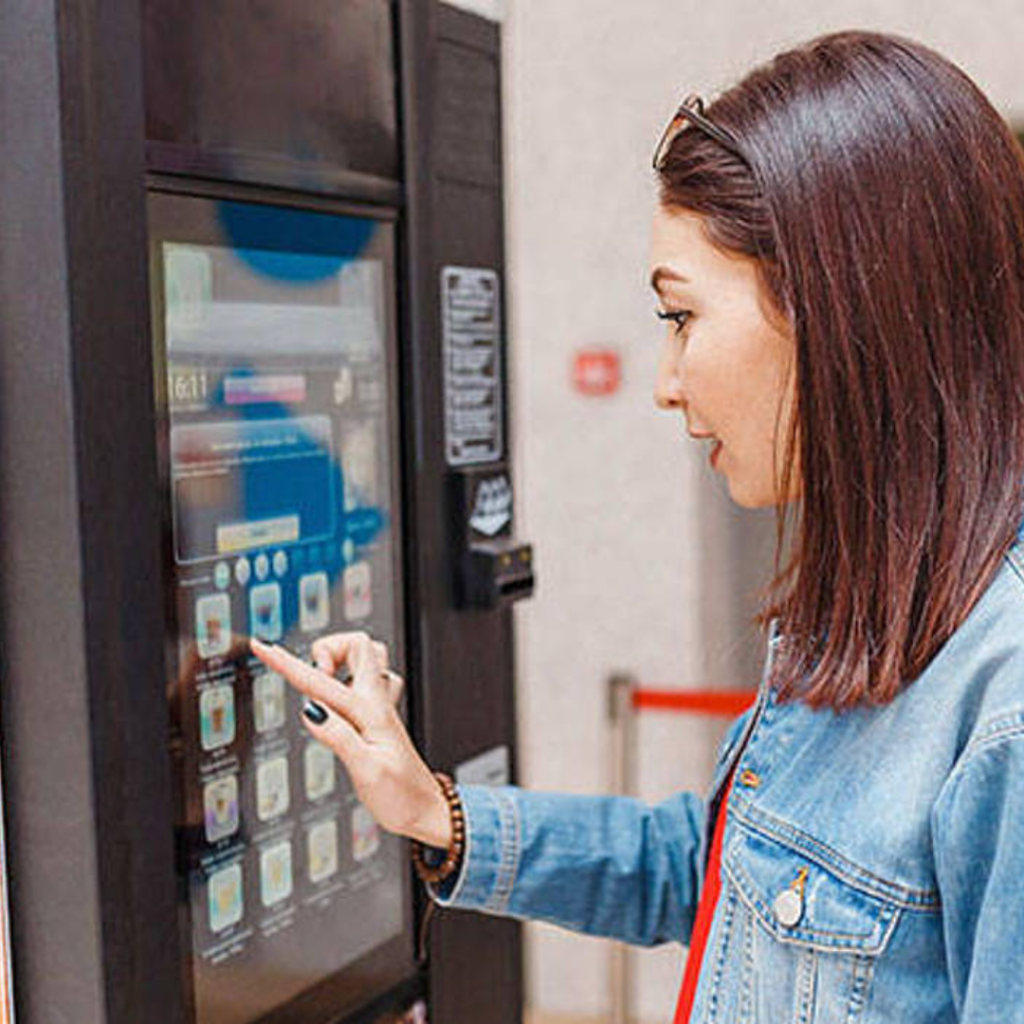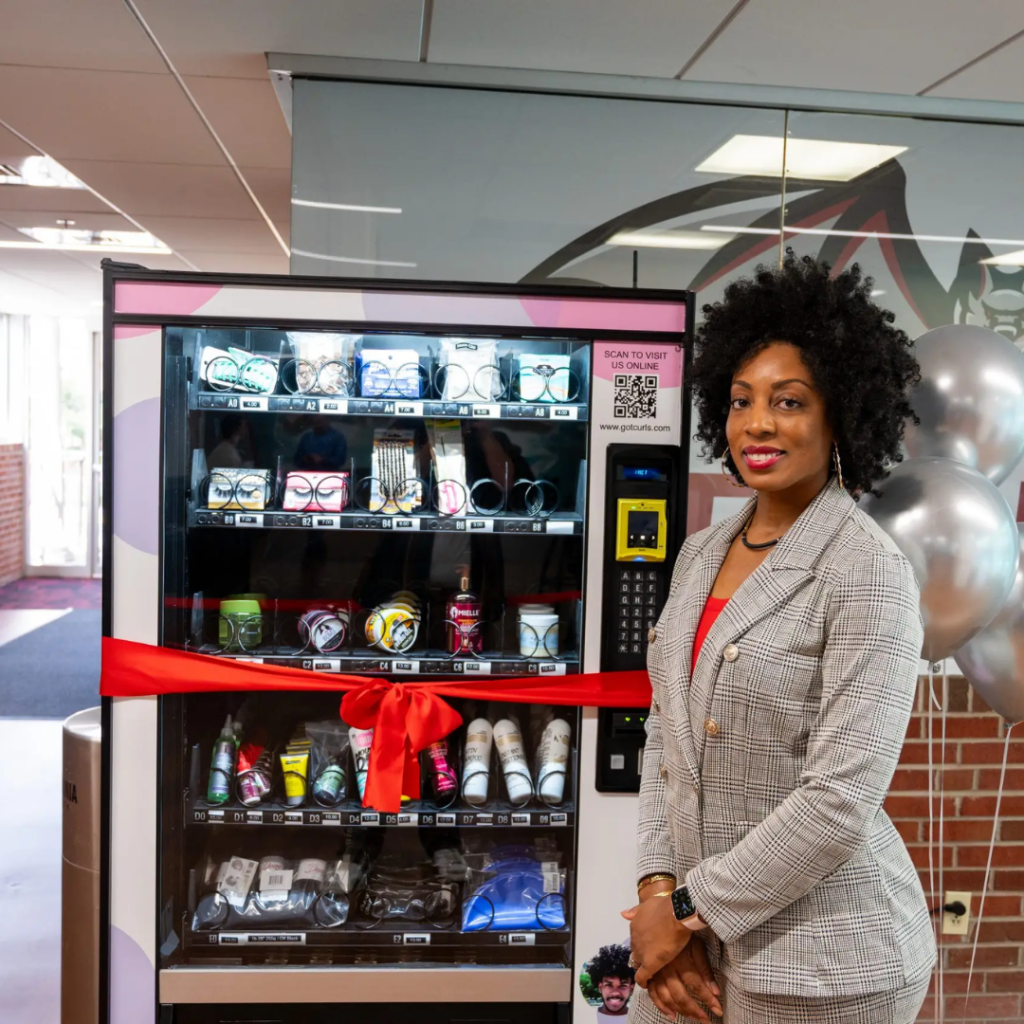Export ready American built machines in stock, shipping from Miami
Is it legal to own and operate vape / Zyn vending machines in Alabama?

1. Introduction: Why This Question Matters
The question Is It Legal to Own Vape Vending Machines in Alabama? and Is It Legal to Own ZYN Vending Machines in Alabama? has become a critical one for vending operators and entrepreneurs in 2025. Across the United States, the market for vape vending machines and Zyn vending machines—which sell electronic nicotine devices and nicotine pouches—has drawn interest from investors seeking innovative retail models. These machines promise convenience and automation but also raise major legal challenges, especially at the state level.
In Alabama, this issue is particularly important because the state has taken a strict approach to regulating nicotine and tobacco sales. Laws governing how and where these products can be sold have evolved rapidly in response to public health concerns and youth access prevention efforts. What might be allowed in one state could lead to penalties or confiscation in another.
This article clarifies the current legal status of vape vending machines and Zyn vending machines in Alabama. It examines the key state statutes, licensing rules, and enforcement trends that determine whether operators can legally own or operate these machines. By the end, you will have a clear understanding of how Alabama law treats automated sales of vape and nicotine pouch products, and what alternatives remain available for vending professionals.
2. Overview of Alabama’s Tobacco and Nicotine Laws
To understand whether vape vending machines or Zyn vending machines are legal in Alabama, it is essential to review how the state defines and regulates nicotine-related products. Alabama law distinguishes several categories that fall under similar sales restrictions, even though they differ in form and use.
Tobacco Products
Traditional tobacco products include cigarettes, cigars, pipe tobacco, and smokeless tobacco made from or derived from tobacco leaves. Under Alabama Code Title 28, these items are tightly regulated, requiring licensed retail sales, age verification, and tax compliance. The sale of these products through vending machines is highly restricted, reflecting long-standing efforts to prevent underage access.
Electronic Nicotine Delivery Systems (ENDS)
ENDS refers to devices commonly known as e-cigarettes or vapes. These systems heat liquid solutions that contain nicotine and produce inhalable vapor. Alabama law treats ENDS the same as other tobacco products for purposes of sale, packaging, and age restriction. Therefore, vape vending machines fall under the same legal framework that governs tobacco vending devices.
Alternative Nicotine Products (e.g., Zyn)
Products such as Zyn, On!, or Velo are classified as “alternative nicotine products.” They deliver nicotine without tobacco or combustion, typically in the form of pouches placed between the gum and lip. Although smokeless and often marketed as a cleaner alternative, these products are regulated under Alabama’s tobacco control statutes. That means Zyn vending machines must comply with the same restrictions that apply to vape and tobacco vending machines.
Relevant Alabama Statutes
The state’s tobacco and nicotine laws are codified primarily under Ala. Code Title 28, Chapter 11. The key provisions govern manufacturing, retail permits, labeling, and vending restrictions. These laws define how and where nicotine products may be sold, and who may sell them. They are enforced by the Alabama Alcoholic Beverage Control (ABC) Board, which also handles retail licensing and compliance inspections.
In summary, Alabama classifies tobacco, vape, and nicotine pouch products under a unified regulatory structure. This means all forms of vending—whether through traditional or smart vending machines—are subject to the same overarching rules designed to control access and ensure age verification. The next section explains how specific legislative actions, including HB 8 and Alabama Code § 28-11-6.1, directly prohibit vending machine sales of these products.
3. Core Legal Prohibition: HB 8 and Ala. Code § 28-11-6.1
Anyone asking Is It Legal to Own Vape Vending Machines in Alabama? or Is It Legal to Own ZYN Vending Machines in Alabama? must start with the state’s core prohibition law. Alabama lawmakers closed nearly all vending machine loopholes for nicotine and tobacco products when they passed HB 8 and updated Ala. Code § 28-11-6.1. This law now serves as the foundation for the state’s strict stance on automated nicotine sales.
What HB 8 Changed
House Bill 8, enacted in early 2025, strengthened existing restrictions on how tobacco, vape, and alternative nicotine products can be sold. Lawmakers introduced HB 8 in response to the rise of smart vending machines capable of selling regulated items without staff supervision. The bill made it clear that automated sales of nicotine and tobacco products are not allowed in public settings. It also expanded enforcement authority for the Alabama Alcoholic Beverage Control (ABC) Board to seize non-compliant machines and fine operators who ignore the law.
Ala. Code § 28-11-6.1 Explained
Section 28-11-6.1 of the Alabama Code states that selling or distributing tobacco, vape, or alternative nicotine products through vending machines is illegal, except under very narrow conditions. The statute defines a vending machine as any device that automatically dispenses a product in exchange for payment. The law’s purpose is simple: prevent unsupervised access to nicotine by minors and reduce illegal sales.
Effective Ban on Vape and Zyn Vending
Under this law, vape vending machines and Zyn vending machines cannot operate legally in most of Alabama. The only exceptions involve tightly controlled, adult-only venues—such as private clubs or licensed establishments—where staff can monitor each transaction and verify age in person. These exceptions are rare and require specific licensing conditions that few operators can meet. As of 2025, Alabama effectively bans all public vending of tobacco, vape, and alternative nicotine products.
In short, HB 8 and Ala. Code § 28-11-6.1 eliminated any practical path for open-market vending of vape or Zyn products.
4. What the Law Means in Practice
Understanding HB 8 and Ala. Code § 28-11-6.1 is one thing, but knowing how those laws apply in real life is what matters for entrepreneurs asking Is It Legal to Own Vape Vending Machines in Alabama? or Is It Legal to Own ZYN Vending Machines in Alabama?. The short answer is that almost no public vending operation can legally sell or distribute vape or Zyn products in Alabama.
How Alabama Defines “Distribution”
Alabama law defines “distribution” broadly. It includes any method that delivers a tobacco, vape, or nicotine product to a consumer in exchange for payment. That means if a machine accepts money or a digital payment and dispenses vape pods or Zyn pouches automatically, it qualifies as a “distributor.” Because vending machines operate without direct human oversight, they fall under the prohibited methods of sale listed in § 28-11-6.1.
Limited Exceptions for Controlled Environments
The law allows very few exceptions. A vape vending machine or Zyn vending machine may operate only inside a strictly adult-only business where staff control every sale. Examples include private clubs, age-restricted lounges, or licensed tobacconist shops. Even in these cases, a human employee must verify age, unlock the machine, and supervise each transaction. The machine cannot remain accessible to the public at any time without supervision.
Publicly Accessible Machines Remain Illegal
Any vending machine located in a public or semi-public space, such as convenience stores, apartment complexes, schools, or shopping centers, violates Alabama law if it dispenses vape or nicotine products. The same rule applies to machines that claim to use age verification software or facial recognition. Technology cannot replace human oversight under Alabama’s current legal framework.
Enforcement and Compliance Reality
Alabama’s ABC Board enforces these restrictions through inspections and complaint-driven investigations. Agents can seize machines, issue fines, and suspend retail licenses when they find violations. Because enforcement agencies treat all forms of vending as “distribution,” operators face high legal risks even if they claim to use private or closed systems. In practice, no operator can legally install or operate vape vending machines or Zyn vending machines accessible to the general public in Alabama.
5. Licensing and Permitting Requirements
Even though the law bans most vending distribution, Alabama still requires every person or business that sells vape, tobacco, or nicotine products to hold a valid retail permit. Understanding these permits helps clarify why the answer to Is It Legal to Own Vape Vending Machines in Alabama? and Is It Legal to Own ZYN Vending Machines in Alabama? remains “no” under current state law.
Who Needs a Retail Permit
Any business that sells, distributes, or offers for sale tobacco, vape, or alternative nicotine products must apply for a retail tobacco permit through the Alabama Alcoholic Beverage Control (ABC) Board. This rule applies to vape shops, convenience stores, and specialty retailers. The ABC Board uses these permits to track every retail location and ensure compliance with labeling, packaging, and age verification laws.
The Permit Application Process
Applicants must complete a state form, provide business identification, pay a fee, and register each sales location. The ABC Board reviews each application to confirm that the applicant meets the legal requirements for nicotine product sales. Local governments may also require separate business licenses or zoning approvals. Each retail location, including any vending machine site, needs its own permit on record before sales can begin.
Permit Limitations
Holding a retail permit does not allow a business to use vending machines for nicotine distribution. The permit covers sales that occur under direct human supervision only. In other words, a convenience store or vape shop may sell vape or Zyn products from behind the counter, but it cannot install an unattended vape vending machine or Zyn vending machine to make those same sales. Each vending device would need its own location-specific permit, which the ABC Board will not approve for automated distribution of restricted products.
Why Licensing Does Not Override the Ban
Some business owners assume that obtaining a tobacco retail permit authorizes vending sales. That assumption is incorrect. The state’s vending prohibition in § 28-11-6.1 overrides any general retail authorization. Even if an operator secures a valid tobacco permit, the law still forbids vending machine distribution of vape or Zyn products in Alabama. The only partial exception applies to private, adult-only premises where staff directly control each transaction.
In short, Alabama’s licensing system regulates who may sell nicotine products, but it does not legalize how those products are sold through machines.
6. Compliance Rules Beyond Vending
Owning or operating a vape vending machine or Zyn vending machine in Alabama is not legal, but businesses that sell nicotine products in other ways still face strict compliance rules. These standards cover product manufacturing, labeling, storage, and recordkeeping. Understanding them helps explain why Alabama keeps tight control over how nicotine products reach consumers.
Manufacturing and Packaging Standards
Alabama requires all tobacco, vape, and alternative nicotine products sold in the state to meet federal manufacturing and labeling standards. Each product must come from a registered U.S. manufacturer, carry child-resistant packaging, and include clear nicotine warnings. The state also prohibits repackaging or relabeling that could hide a product’s origin. These rules ensure every item in the marketplace can be traced back to an authorized producer.
Location Restrictions
Retailers must limit the sale of vape and nicotine products to adult-only environments. No one under 21 may legally purchase or handle these items. Businesses that share space with general retail areas must restrict access through signage and physical separation. Because vape vending machines and Zyn vending machines operate without staff supervision, they cannot meet these location control requirements in public settings.
Ban on Mixing Nicotine and Non-Nicotine Products
Alabama prohibits selling nicotine and non-nicotine items from the same automated system. A vending machine cannot mix general products—such as snacks or beverages—with nicotine or tobacco. This rule exists to prevent confusion and to protect minors from exposure to nicotine products in ordinary retail spaces. Even a machine equipped with advanced age-verification software still violates this provision if it sells restricted products alongside general merchandise.
Recordkeeping and Inspection Duties
Every licensed retailer must keep detailed purchase and sales records for nicotine products. These records include supplier information, product quantities, and invoice numbers. The Alabama ABC Board can inspect these records at any time to verify compliance. Retailers who fail to maintain accurate logs risk suspension or loss of their sales permits. Operators of smart vending machines that dispense nicotine would also face these recordkeeping obligations, but since vending is prohibited, such operations cannot comply legally.
Compliance rules in Alabama create a tightly controlled retail environment for tobacco, vape, and alternative nicotine products. These laws make it nearly impossible for vending to operate within the legal framework. The next section outlines the specific penalties that apply when businesses attempt to distribute nicotine products through vending machines despite these restrictions.
7. Penalties for Violations
Business owners who ignore Alabama’s vending restrictions face serious consequences. Anyone asking Is It Legal to Own Vape Vending Machines in Alabama? or Is It Legal to Own ZYN Vending Machines in Alabama? should understand that violating state law does not only lead to fines—it can also bring license suspension, criminal charges, and equipment seizure.
Fines and Administrative Penalties
The Alabama Alcoholic Beverage Control (ABC) Board enforces all tobacco and nicotine sales laws. When inspectors find a business operating a vape vending machine or Zyn vending machine, they can issue fines that range from several hundred to several thousand dollars per violation. Each day the illegal machine remains in service counts as a separate offense. The ABC Board can also revoke the business’s retail tobacco permit, blocking it from selling any nicotine products in the future.
License Suspension and Seizure of Equipment
If the violation involves a vending machine or other automated system, enforcement officers have the authority to seize the equipment immediately. The ABC Board may suspend the owner’s retail permit or reject future license applications. In some cases, they also refer repeat violators to local prosecutors. Once the board revokes a license, it becomes difficult for that operator to re-enter the state’s tobacco or vape market legally.
Civil and Criminal Consequences
Operating an illegal vape vending machine or Zyn vending machine can trigger both civil and criminal penalties. Civil violations include fines and permit suspension, while criminal charges may apply if the operator knowingly sells nicotine products to minors or ignores cease-and-desist orders. Convictions can result in higher fines, probation, or even short jail terms for willful misconduct. Alabama takes these offenses seriously, especially when youth access is involved.
Recent Enforcement Examples
In recent years, Alabama regulators have increased inspections targeting unauthorized sales of vape and alternative nicotine products. Inspectors have confiscated unlicensed vape inventory and fined convenience stores for age-verification failures. Although few public cases involve vending machines—since most operators now avoid that risk—any attempt to distribute nicotine through automated devices would trigger immediate enforcement under § 28-11-6.1.
In short, the penalties for ignoring Alabama’s vending laws far outweigh any potential profit. The next section explains what these rules mean for vending machine operators and why investing in a vape vending machine or Zyn vending machine business in Alabama is not currently a viable strategy.
8. Implications for Vending Machine Operators
For vending entrepreneurs, Alabama’s current laws create one of the toughest environments in the country for automated nicotine sales. Operators who might want to place vape vending machines or Zyn vending machines in public locations cannot do so legally under the state’s vending prohibition. The restrictions leave little room for creative or technology-based workarounds.
Why the Vending Model Fails in Alabama
Automated nicotine sales depend on quick, unsupervised transactions. Alabama law requires direct human oversight for every sale involving tobacco, vape, or alternative nicotine products. That single rule removes the core advantage of vending. Even smart vending machines with advanced age-verification systems do not satisfy the requirement for in-person monitoring. As a result, the business model that works in other states cannot operate within Alabama’s legal framework.
Alternative Approaches for Entrepreneurs
Some operators choose to partner with existing vape or tobacco retailers instead of running independent vending systems. By doing so, they can share space, reduce licensing costs, and maintain compliance with the ABC Board’s regulations. Others shift focus toward adult-only environments, such as private clubs or lounges, where supervised sales remain possible. These models rely on trained staff rather than automation, but they allow entrepreneurs to participate in the nicotine market legally.
Exploring Legal and Lower-Risk Options
Investors who want to stay in the vending business can explore non-nicotine categories. Machines that sell snacks, beverages, CBD-free wellness items, or general retail goods face far fewer restrictions. These options reduce compliance costs and eliminate the risk of fines or seizures. By shifting away from nicotine distribution, vending operators can protect their investment and avoid violating state law.
Compliance Costs and Risk Tolerance
Operating any business that handles nicotine products in Alabama involves high compliance costs. Licensing, recordkeeping, inspections, and labeling rules all add complexity. For vending professionals, these costs offer no return because the state prohibits unsupervised sales. Anyone considering this business should evaluate their risk tolerance carefully and focus on markets where vending remains legal and financially sustainable.
9. Local Regulations and Zoning Factors
Even though Alabama’s state law already bans vape vending machines and Zyn vending machines, local governments may add their own restrictions. Cities like Birmingham, Montgomery, and Huntsville often enforce zoning or business licensing rules that further limit where tobacco or vape retailers can operate. These rules can affect location choices even for businesses that only sell traditional products.
Operators should always verify local ordinances before opening or installing any vending equipment. Some municipalities require separate permits, background checks, or distance buffers from schools and churches. Enforcement intensity also varies by county, so a city inspector might interpret compliance differently from a state ABC officer. Checking with both local and state regulators helps avoid costly mistakes and shutdowns.
10. Legal Gray Areas and Future Outlook
Technology continues to challenge existing nicotine laws, and Alabama may eventually revisit its vending restrictions. Some industry groups believe biometric age verification or remote monitoring could make smart vending machines secure enough for controlled sales. For now, those ideas remain only theoretical under current law.
Future legislative updates could change how the state regulates automated sales, especially if federal guidelines shift or neighboring states adopt new models. Still, public health agencies in Alabama maintain a strict stance on preventing youth access to nicotine. Anyone considering a vape vending machine or Zyn vending machine business should monitor both legislative sessions and ABC Board announcements before investing in new equipment or technology.
11. Specific Note on Zyn and Nicotine Pouches
Products like Zyn fall under Alabama’s definition of “alternative nicotine products.” This category includes nicotine pouches that do not contain tobacco but still deliver nicotine through oral absorption. The law treats these items the same as cigarettes or vape products for purposes of age restriction, licensing, and vending rules.
Because of that classification, Zyn vending machines are illegal in the same way vape vending machines are. Even though Zyn does not produce smoke or vapor, it remains a regulated nicotine product. The public often views it as safer or less addictive, but Alabama law does not distinguish between the form of nicotine delivery—only whether nicotine is present. Any vending machine that dispenses Zyn or similar products violates the state’s ban on automated nicotine distribution.
12. Conclusion: Key Takeaways for Alabama Entrepreneurs
Alabama law leaves no room for operating vape vending machines or Zyn vending machines in public or unsupervised spaces. State statutes, reinforced by HB 8 and Ala. Code § 28-11-6.1, prohibit vending distribution of all nicotine and tobacco products, including alternative nicotine pouches. These restrictions apply even to machines equipped with advanced technology or biometric verification.
Entrepreneurs who want to enter the vending market in Alabama should focus on compliant product categories such as snacks, beverages, or CBD-free wellness goods. Those interested in nicotine retailing must obtain proper permits and operate within staffed, adult-only environments. The risks of noncompliance—seized equipment, license loss, and heavy fines—make vending an unsuitable method for nicotine sales under current law.
Before investing in any nicotine-related venture, business owners should consult a state-licensed attorney or compliance specialist. Staying informed about legislative updates and regulatory trends protects both the operator and the business. For now, the clear answer to both Is It Legal to Own Vape Vending Machines in Alabama? and Is It Legal to Own ZYN Vending Machines in Alabama? is no.

